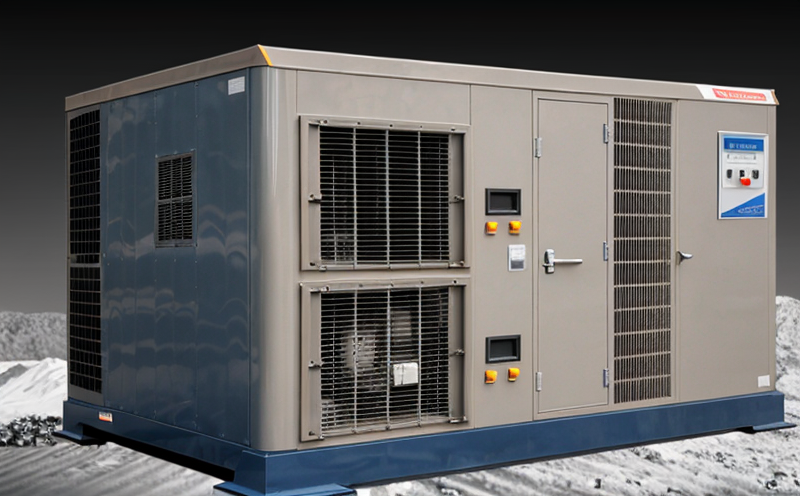JEDDEC JESD22-A138 Accelerated Thermal Endurance Testing
The JEDEC JESD22-A138 standard is a critical tool for semiconductor and microchip manufacturers to ensure their products can withstand the harsh environmental conditions they will encounter during use. This accelerated thermal endurance testing method simulates real-world operating temperatures over time, helping engineers identify potential weaknesses in design or manufacturing processes before mass production.
The test follows specific protocols outlined by JEDEC to ensure reliability across all devices within a batch. By subjecting components to controlled high and low temperature cycles, it helps detect early signs of failure due to thermal stress which could otherwise go unnoticed during normal operation.
This type of testing is particularly important in industries where performance and longevity are paramount—such as automotive electronics, aerospace equipment, and medical devices that operate under extreme conditions. It allows companies to improve product quality by identifying issues early in the development cycle rather than waiting until after release when it becomes more expensive and difficult to address.
At our laboratory, we utilize state-of-the-art facilities equipped with precision-controlled environmental chambers capable of simulating temperatures ranging from -55°C to +125°C. Our experienced technicians have extensive knowledge in this area ensuring accurate results every time. The process typically involves placing the component inside the chamber and gradually increasing or decreasing temperature according to specified schedules.
The goal is not just to expose defects but also provide valuable data on how well each part performs under these conditions. This information can then be used during design reviews, process improvements, and qualification efforts ensuring only robust products reach market.
Our comprehensive testing services go beyond mere compliance with industry standards; they offer insights that contribute significantly towards product development cycles. With decades of experience in this field, we pride ourselves on delivering reliable data that helps make informed decisions about your next project.
Scope and Methodology
The scope of JEDEC JESD22-A138 testing includes evaluating the thermal endurance capabilities of various semiconductor devices by exposing them to extreme temperature cycles. The methodology involves placing specimens into a controlled environment that can rapidly transition between defined upper and lower limits.
- Upper limit typically set at +125°C
- Lower limit usually established at -55°C
The exact temperatures and durations used depend on the specific requirements specified by the client. However, standard cycles often involve holding components at these extremes for predetermined periods followed by gradual transitions back to ambient temperature.
During this process, various parameters are continuously monitored including voltage levels, current consumption, dielectric strength, and leakage currents among others. Any deviations from expected values could indicate potential issues within the device itself or flaws in its manufacturing process.
Benefits
- Early detection of design defects reducing costly redesigns post-release
- Improved product reliability enhancing customer satisfaction and brand reputation
- Enhanced competitiveness by ensuring compliance with stringent quality standards
- Potential cost savings through prevention of late-stage failures during production runs
The ability to predict performance under adverse conditions translates directly into reduced warranty claims and increased trust among end-users. For R&D teams, having access to such detailed feedback allows for iterative improvements that lead to better-performing products.
For quality managers and compliance officers, this service provides peace of mind knowing that their suppliers are meeting all necessary criteria. It also aids in strategic decision-making regarding future product development plans by providing actionable intelligence based on real-world test results.
Competitive Advantage and Market Impact
Adopting JEDEC JESD22-A138 testing offers significant advantages over traditional methods, giving organizations a competitive edge in today’s increasingly demanding market environment. Here are some key points:
- Enhanced confidence in product performance leading to higher sales conversion rates
- Premature failure prevention resulting in extended product lifecycles and increased customer loyalty
- Achievement of regulatory compliance requirements without compromising on quality
- Attractiveness for investors interested in sustainable, high-quality offerings
In terms of market impact, successful implementation of these tests demonstrates a commitment to excellence which resonates well with stakeholders—be they customers, partners, or shareholders. It sets the stage for continued innovation and leadership within your industry segment.





